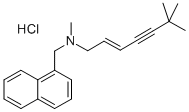Special birds in the hot environment, due to heat dissipation caused by overheating the body, easily lead to central nervous system, circulatory system, respiratory dysfunction, severe death. To reduce heat stress, the following drugs can be added to maintain normal metabolism. 1, sedatives. During heat stress, in order to reduce muscle activity and other non-productive activities of heat production, sedative drugs are used to inhibit central nervous system and body activities, and maintain the normal function of the central nervous system to improve the heat resistance of poultry. Common sedatives are: reserpine, diazepam, chlorpromazine, etc. They can make the bird's breathing frequency slow down, ease the hot wheezing, reduce the excretion of CO2, delay the occurrence of alkalosis, and alleviate the heat damage to poultry. . 2, electrolytes, birds, heat stress, breathing speed, increased CO2 emission, so that the blood storage of CO2 decreased, H2CO3 reduction, resulting in internal environment acid-base imbalance, electrolyte concentration in the body fluid is not stable; due to increased secretion of aldosterone, strengthened Sodium release potassium, so that the body's level of potassium decreased, the occurrence of hypokalemia, affecting protein metabolism; due to increased drinking water, causing continuous electrolyte consumption, blood, zinc, iron, potassium, phosphorus and calcium and other inorganic elements decreased . Therefore, NaHCO3, KHCO3, KCI, NaC1, NH4C1, etc. should be supplemented to supplement mineral needs and maintain acid-base balance. For example, adding 0.2% KC1 in drinking water can reduce the bird's canopy temperature, body temperature and respiration rate during heat stress, and have a certain weight gain effect. Adding 0.4% NaHCO3 to feed or drinking water can relieve heat stress and increase meat and poultry Feed intake and growth rate; addition of 1% NH4C1 and 0.5% NaHCO3 in feed to overcome acid-base balance disorders and protect production performance; add 0.2% in drinking water. KCL and 0.2% NH4C1 can improve the survival rate of birds under heat stress And production performance. The following should be noted when adding electrolytes: First, adding NaHCO3 to a heat-stressed poultry diet may increase the likelihood of avian alkalosis, and the addition of NH4C1 may increase the risk of avian acidosis. Therefore, balance should be taken care of. Second, when adding electrolytes, it is necessary to pay attention to the control of the dose, too much can cause a smooth imbalance of the internal environment, resulting in more serious consequences. 3, vitamins. Vitamin C: Vitamin C is a raw material for poultry to synthesize corticosterone. When the bird is stressed, the secretion of corticosterone increases, so that the demand for vitamin C increases, while the ability of the body to synthesize vitamin C decreases, and the content of vitamin C in blood or tissue decreases. The result is insufficient synthesis of corticosterone, leading to the death of birds in acute heat stress. Vitamin C supplementation during heat stress is beneficial for relieving heat stress and can increase broiler weight gain and feed conversion. The amount of added vitamin C can be It is 20 mg/kg. Vitamin E: In heat stress conditions, high levels of vitamin E can reduce cell membrane permeability, reduce muscle cell creatine kinase release during stress, thereby preventing excessive Ca2+ influx resulting in metabolism of normal cells. interference. At the same time, vitamin E can also alleviate the immunosuppression caused by the release of adrenal cortex hormones at high temperatures and increase the disease resistance of birds. Other vitamins: In heat stress, adding a mixture of vitamins such as vitamin A, vitamin D, and vitamin B in drinking water can also enhance the immune response of the poultry, increase the weight gain, and reduce the rate of disability. 4, Chinese herbal medicine. Ordinary poultry farms use cold Chinese herbal medicine (such as gentian, mint, bupleurum, radix astragali, etc.) to boil water, cool it to room temperature, and then drink it. This has the effect of cooling the skin.
An antifungal medication, also known as an antimycotic medication, is a pharmaceutical fungicide or fungistatic used to treat and prevent mycosis such as athlete's foot, ringworm, candidiasis (thrush), serious systemic infections such as cryptococcal meningitis, and others.
Antifungal pharmaceuticals include Terbinafine HCL, here is the structure:

An antibiotic (from ancient Greek αντιβιοτικά, antibiotiká), also called an antibacterial, is a type of antimicrobial drug used in the treatment and prevention of bacterial infections.
Sometimes the term antibiotic (which means "opposing life") is used to refer to any substance used against microbes.
Antifungal/Antibiotic/Antimicrobial
Nifuratel Drug Raw Material,Falvin Antifungal Agent,Dexamethasone Prednisone Cream,Voriconazole Powder 99%
Jinan Jianfeng Chemical Co., Ltd. , http://www.pharmachemm.com

